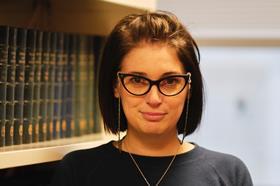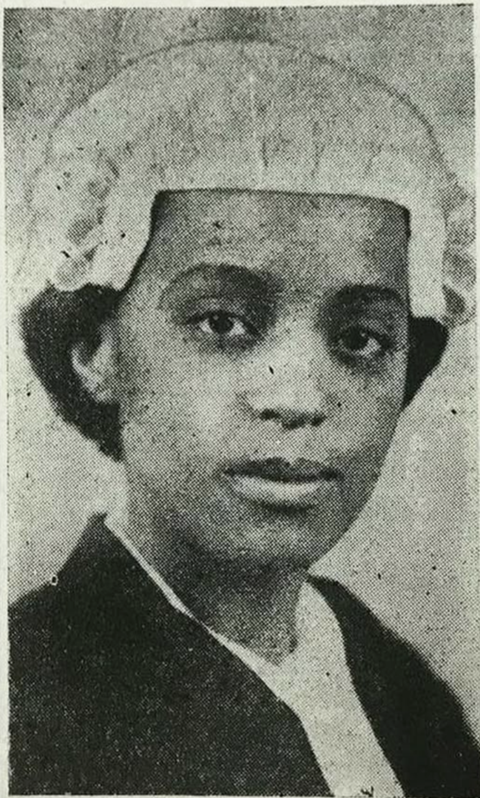Mona Marjorie Rigsby occupies a distinguished place in Caribbean legal history as the first Trinidadian woman to be called to the English Bar and the first woman to practise law in both Trinidad and Dominica. Her remarkable career began in September 1939, at the onset of World War II, and unfolded through a period of profound transformation, from the decline of colonial rule to the emergence of Caribbean self-government.

Born in Port of Spain on 2nd March 1918, Mona was the eldest daughter of Matilda and Murchison Rigsby. Her father, a solicitor, conveyancer, alderman and former deputy mayor, was a prominent civic figure whose professional example likely inspired her early ambitions. Her mother oversaw Mona’s early education, homeschooling her until she began her formal studies.
Attending St. Joseph’s Convent, Rigsby excelled academically. By 13, she had earned her Junior Cambridge Certificate with distinctions, and at 15, she passed the Cambridge School Certificate with honours. In 1935 she completed the London University matriculation examination and, at just 17, embarked upon her legal studies. In September of that year Rigsby departed for England with her mother and younger sister, Lorna, aboard the S.S. Costa Rica, arriving at Plymouth on 27 September.
Upon reaching London, Rigsby was admitted to the Middle Temple on 9 October 1935. Her initial London address was Aggrey House at 47 Doughty Street, Bloomsbury, a residence for overseas students, established by Harold Moody of the League of Coloured Peoples in conjunction with the Colonial Office. Rigsby’s mother Matilda is recorded as living at 35 Great Queen Street, near the Strand, and it is likely Mona stayed with her throughout her time in London, indeed, by 1939 when she was old enough to appear on the electoral register, that was her listed address.
Rigsby’s contemporary and friend Ellis Clarke, later Sir Ellis Clarke, the first president of Trinidad and Tobago, wrote candidly about the discrimination he encountered as student in London studying for the bar. However, it is difficult to say what Mona’s experience of London was like. Outside of contemporary press articles, we do not have ready access to her reflections.

On 8 June 1939, Rigsby passed her final bar examinations and, shortly thereafter, in the Trinity Term, she was called to the English Bar at the age of just 21. Her call was reported across the British press with both admiration and some condescension, with The Sunday Mercury reporting on 30 July 1939: 'Mona Rigsby, a pretty girl of colour, has been called to the English Bar - the first Trinidadian of her sex to achieve the distinction. More than this, Mona is the youngest barrister in the Empire. She is only 21.'
In August 1939, she returned to Trinidad, again travelling with her sister Lorna and their mother on the S.S. Costa Rica. In September of that year Rigsby was admitted to practise, becoming the first woman barrister in Trinidad and Tobago. At her admission, with her close family in attendance, Justice Gilchrist jokingly remarked: 'Your father is a solicitor and no doubt he is very proud today to feel that he has a barrister, a member of the bar, to whom he is able to resort for advice.'
In 1947, Rigsby again broke new ground when she was admitted to practise in Dominica, the first woman to do so. Two years later, in May 1949, in a defining moment for women at the bar, Rigsby formally moved the admission of Eugenia Charles (later Dame Eugenia Charles), who would become Dominica’s first female barrister and later the first female prime minister.
Rigsby’s professional career spanned several Caribbean territories, including St. Kitts where she held the position of chief magistrate and the Windward and Leeward Islands where she was admitted to practice as a solicitor in the Supreme Court.
Rigsby’s personal life was closely intertwined with her professional journey. In 1946 in St Ann’s Roman Catholic Church in Trinidad, she married George Alphonsus Larocque James, a Dominican lawyer, called to the bar at Gray’s Inn. The couple raised seven children, including two sets of twins, while maintaining private practices in both Port-of-Spain, Trinidad, and Roseau, Dominica.
Rigsby’s contributions extended beyond the courtroom. As president of the Caribbean Women’s Association (CWA), she championed women’s advancement and regional cooperation.
Mona Rigsby James, as she became known after marriage, died at age 78, surrounded by her family. Sir Ellis Clarke delivered her eulogy, describing her as both brilliant and formidable. A lawyer opponents feared to face because she always won her cases. (Salandy, 2023).
In tracing her path, we are reminded of the foundations laid by early women lawyers whose names are too often absent from the official record but whose contributions shaped the professional landscape today.
Sally McLaren has been a law librarian for more than 20 years































No comments yet